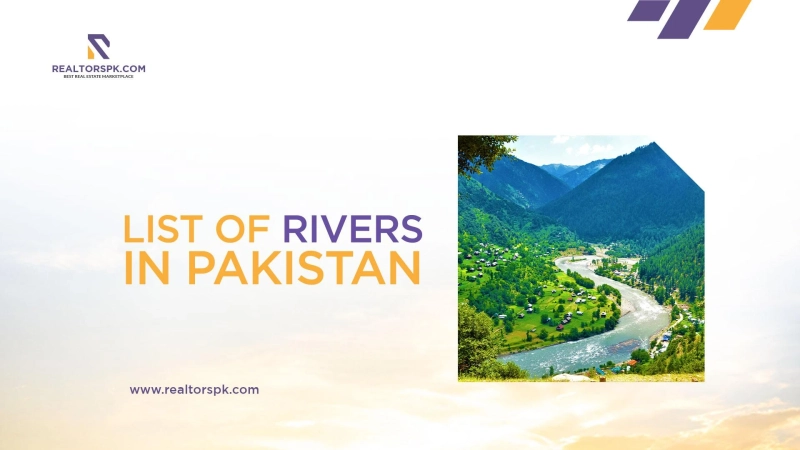Pakistan, a land blessed with diverse landscapes and abundant natural resources, boasts a network of rivers that play a crucial role in shaping the country's geography, economy, and culture. These majestic water bodies, originating from the lofty peaks of the Himalayas and the Karakoram Range, flow through fertile valleys, sustaining agriculture and providing livelihoods to millions. This article explores the significance of rivers in Pakistan and their impact on the nation's growth and development.
The Mighty Indus River:
The Indus River, often referred to as the lifeline of Pakistan, is one of the longest and most significant rivers in South Asia. It originates in Tibet and meanders through India before entering Pakistan near Skardu. From there, it continues its journey, flowing through the plains of Punjab and Sindh, finally emptying into the Arabian Sea. The Indus River Basin supports an extensive irrigation system, facilitating agriculture and making it a crucial component of the country's agricultural economy.
The Splendor of Jhelum and Chenab:
Two other prominent rivers in Pakistan are the Jhelum and Chenab rivers, both tributaries of the mighty Indus. The Jhelum River emerges from the Indian-administered territory of Jammu and Kashmir and flows through Pakistan's Azad Kashmir region. Similarly, the Chenab River originates from the Indian side and enters Pakistan near the city of Sialkot. Both rivers enrich the soil along their banks, supporting agriculture, and have immense hydropower potential, contributing to the country's energy needs.
Indus Water Treaty:
The Indus River system is shared with India through the Indus Water Treaty, a landmark water-sharing agreement signed in 1960. Under this treaty, Pakistan was granted the exclusive rights to the three western rivers (Indus, Jhelum, and Chenab), while India was given control over the three eastern rivers (Ravi, Beas, and Sutlej). The treaty aimed at preventing conflicts over water resources and ensuring an equitable distribution of water between the two neighboring countries.
Challenges and Conservation Efforts:
Despite the significance of these rivers, Pakistan faces several challenges concerning their conservation and management. Rapid urbanization, industrialization, and agricultural expansion have led to pollution and depletion of water resources. Additionally, climate change poses a threat, with changing weather patterns affecting the timing and intensity of river flows.
To address these issues, the government of Pakistan, along with various organizations, has initiated conservation efforts and water resource management projects. These include building dams and reservoirs to regulate water flow, implementing measures to control pollution, and promoting sustainable agricultural practices.
Cultural and Recreational Significance:
Rivers hold immense cultural importance in Pakistan. They have been celebrated in folklore, poetry, and traditional songs for centuries. Riverbanks are popular spots for recreational activities, offering opportunities for boating, fishing, and picnicking. Moreover, the Indus River civilization, one of the world's oldest urban civilizations, traces its roots to this region, further highlighting the historical significance of these water bodies.
Conclusion:
Rivers in Pakistan are not merely waterways but lifelines that sustain the nation's agriculture, economy, and cultural heritage. As Pakistan continues to progress and face modern challenges, it is essential to safeguard and utilize these precious resources wisely. With sustainable management practices and a collective effort, the rivers of Pakistan will continue to thrive, enriching the lives of its people and shaping the nation's future for generations to come.



